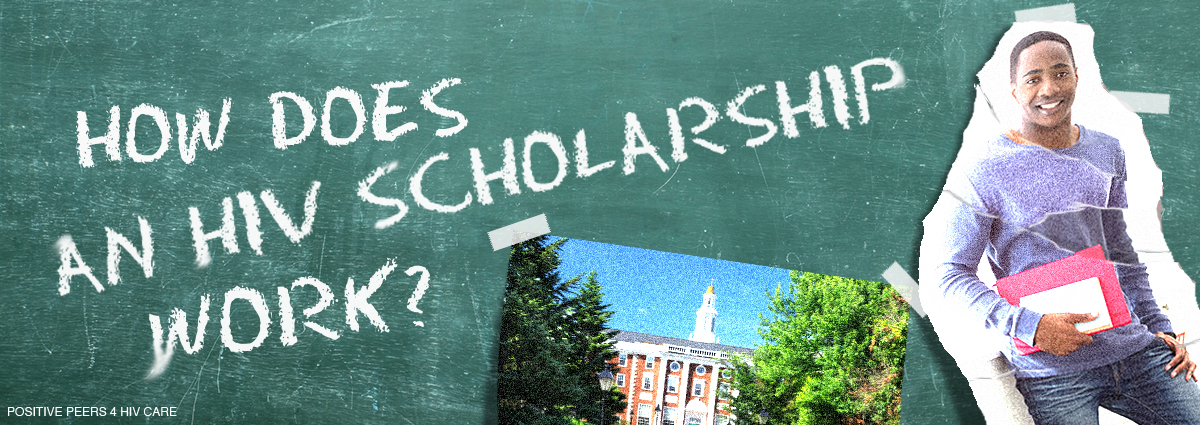
By: Jennifer McMillen Smith, LISW-S, HIV Social Worker at MetroHealth Medical Center and medically reviewed by Ann K. Avery, MD, Infectious Disease Physician at MetroHealth Medical Center
College costs a crap ton of money these days, but there are plenty of grants, loan programs, and scholarship opportunities to help out with the cost.
Did you know there are scholarships for people who are living with HIV? Awesome, right? Back before we had the treatments we do now, people with HIV often dropped out of college or didn’t go at all because they felt hopeless, battled health issues, or worried about money.
That, friend, is no longer the case!
HIV positive people who take their meds as directed have a healthy life ahead of them — plenty of time to get the full college experience and build a successful career.
Even if a four-year degree isn’t your thing, there are certificate programs for a host of good-paying jobs that only require a couple years of technical training. Before deciding on what’s right for you, it’s important to think about what you’re passionate about. Education is always a good thing, but make sure you study something you love! College isn’t cheap, and you don’t want to waste time and money studying something you hate.
More details on scholarships for people with HIV:

How does an HIV scholarship work?
An HIV scholarship isn’t quite like a football or basketball scholarship.
It helps pay some of the cost of college for people who are HIV positive — but it’s not usually a full-ride.
HIV scholarships sometimes come from specific schools and for specific groups of people, such as those who identify as lesbian, gay, bisexual, trans, or queer.
A scholarship might be as small as $500 or as big as $5,000. That won’t pay all your college costs, but it’s still free money!
Come join our private, stigma-free, supportive community.
Health management tools with medication & appointment reminders.
Social networking in a community conversation & private chats.
What do I need to apply for an HIV scholarship?
You’ll most likely need paperwork showing that you’re planning to or already enrolled at a college/university. And you’ll need to be living with HIV.
Some scholarships are need-based, so you may have to provide paperwork on your income (and your parents’ income if you still live at home). You may also need to supply high school transcripts.
We all know that paperwork is annoying, but help is available if you need it. Ask around for help from friends, family, mentors, or even your social worker. They can help you review things and make sure you didn’t forget anything!
What are some examples of HIV scholarships?
If you Google “HIV scholarships,” you’ll find there are a lot out there. Take a minute to dig deep for opportunities other people might overlook. Here are a couple examples:
- Ohio State University LGBTQ Alumni Society offers the Harold A. McIntosh Scholarship for Students Living with HIV/AIDS. It’s a one-time award of $1,500 for OSU students. It’s given out based on academic achievement and financial need.
- The Pedro Zamora Young Leaders Scholarship is not specifically for students who are HIV positive. Rather, it is for college students making a concerted effort to improve the lives of people with HIV and fighting to end the HIV epidemic. High school seniors and college freshmen, sophomores and juniors up to age 27 can apply.
As you search for HIV scholarship information, you’ll notice a few key things come up a lot:
- Regions: Many scholarships are limited to people living in a specific area. So make sure you know where students have to live to be eligible. This is important because you could be wasting your own time. If you live in Cleveland, don’t want to drive yourself crazy applying for scholarships limited to people in California.
- Professions: Scholarships also help students going into a specific line of work like health care or engineering.
- Essays: Scholarships often require applicants to write a short essay explaining something that will help decide who gets the scholarship. The better the essay, the better your chances. If you don’t think you’re very good at writing essays, ask a family member or friend to proofread it when you’re done.
Scholarships aren’t given out to just anybody, you have to impress the people giving away the money – but don’t let that stop you! Throw your crown on, get your typing fingers ready, and show them how amazing you are. You got this!
Related Blogs:



